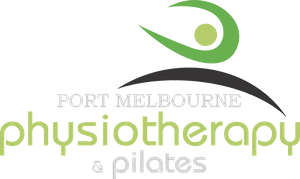Sleep: are you getting enough?
In the fast-paced world we live in, achieving quality sleep can be a challenge for many. Sleep is crucial for overall health and well-being, impacting our physical, mental and emotional state. If you’re struggling to get a good nights sleep, magnesium might just be the missing link to your restful slumber. On a personal note, it has been a game changer for me, so I definitely preach it!
The role of magnesium for sleep:
Magnesium is an essential mineral that plays a vital role in various bodily functions. This includes heart, muscle and nerve function, blood sugar regulation and bone health. Additionally, magnesium has gained recognition for its potential role in promoting better sleep (1).
Muscle Relaxation:
Magnesium acts as a natural muscle relaxant, helping to ease tension and reduce muscle cramps (3). This relaxation extends to the smooth muscles within the digestive tract, promoting a calmer, more peaceful state before bedtime.

Regulating GABA Levels:
Gamma-aminobutyric acid (GABA) is a neurotransmitter that has calming effects on the brain. Magnesium helps regulate GABA receptors, promoting a sense of peacefulness and assisting in the initiation of sleep (3).
Melatonin Production:
Magnesium is involved in the conversion of tryptophan to melatonin, the hormone responsible for regulating sleep-wake cycles. Adequate magnesium levels may contribute to the natural production of melatonin, helping to establish improved sleep patterns (1).
Stress Reduction:
Chronic stress and anxiety can be significant barriers to restful sleep. Magnesium has been shown to modulate the stress response, potentially reducing cortisol levels and creating an improved environment for sleep (1).
Natural Sources of magnesium:
While magnesium supplements are available, it cannot replace a well balanced diet. Some magnesium-rich foods to include in your meals are (3):
● Dark leafy greens (spinach, kale).
● Nuts and seeds (almonds, pumpkin seeds).
● Legumes (black beans, lentils).
● Whole grains (brown rice, quinoa).
● Avocado.
● Fatty fish (salmon, mackerel).

Supplementation:
If dietary sources are insufficient, magnesium supplements may also be considered. These are available in many forms. If you have a medical condition or take any medication, consult with a doctor/dietician before starting. Here at PMPP we like to preach magnesium spray – we stock Salt Lab: https://www.saltlaboratory.com. This is easily absorbed through the skin, and can apply it before bed to aid in a restful sleep.
How To Use:
Spray 6-8 Sprays onto your stomach, legs, feet or back, 10-30 mins before bed. Massage in, allowing it to dry before covering up (2). If you have never used magnesium oil before, start by using it on your feet only for 2-3 weeks to allow your body to adjust. If using on children, apply to their feet only for 4 weeks before spraying onto their stomachs as well (2). It is recommended to patch test first (2).
Conclusion:
In the pursuit of a good night’s sleep, paying attention to your magnesium intake could be a game changer. Incorporating magnesium-rich foods into your diet or discussing the possibility of supplementation with your healthcare provider may help address sleep issues naturally.
Remember, establishing healthy sleep habits involves a holistic approach, including a balanced diet, regular exercise, stress management, and a consistent sleep routine.
Magnesium is just one piece of the puzzle but its potential benefits make it a worthy consideration of the journey to a more restful and rejuvenating night’s sleep. Sweet dreams!
For any dietary questions, please book in with Melissa, our dietician here at PMPP.
Please also ask our friendly staff regarding the magnesium spray at the clinic.

Lucy Bowden
Physiotherapist
Other related PMPP blogs:
- https://portmelbournephysio.com.au/magnesium-health-benefits/
- https://portmelbournephysio.com.au/magnesium-pregnancy/
- https://portmelbournephysio.com.au/make-sleep-your-strength/
- https://portmelbournephysio.com.au/sleep-and-the-consequences-of-sleep-deprivation/
- https://portmelbournephysio.com.au/sleep-hygiene/
References:
- Using magnesium for better sleep (2023) Sleep Foundation. Available at:
https://www.sleepfoundation.org/magnesium (Accessed: 07 January 2024). - Magnesium supplements (no date) Salt Lab. Available at:
https://www.saltlaboratory.com/ (Accessed: 07 January 2024). - Gurubhagavatula, I. (2023) What an expert says about taking magnesium for sleep:
San Diego Hospital, Healthcare, Health Library. Available at:
https://myhealth.ucsd.edu/RelatedItems/6,1659474634

